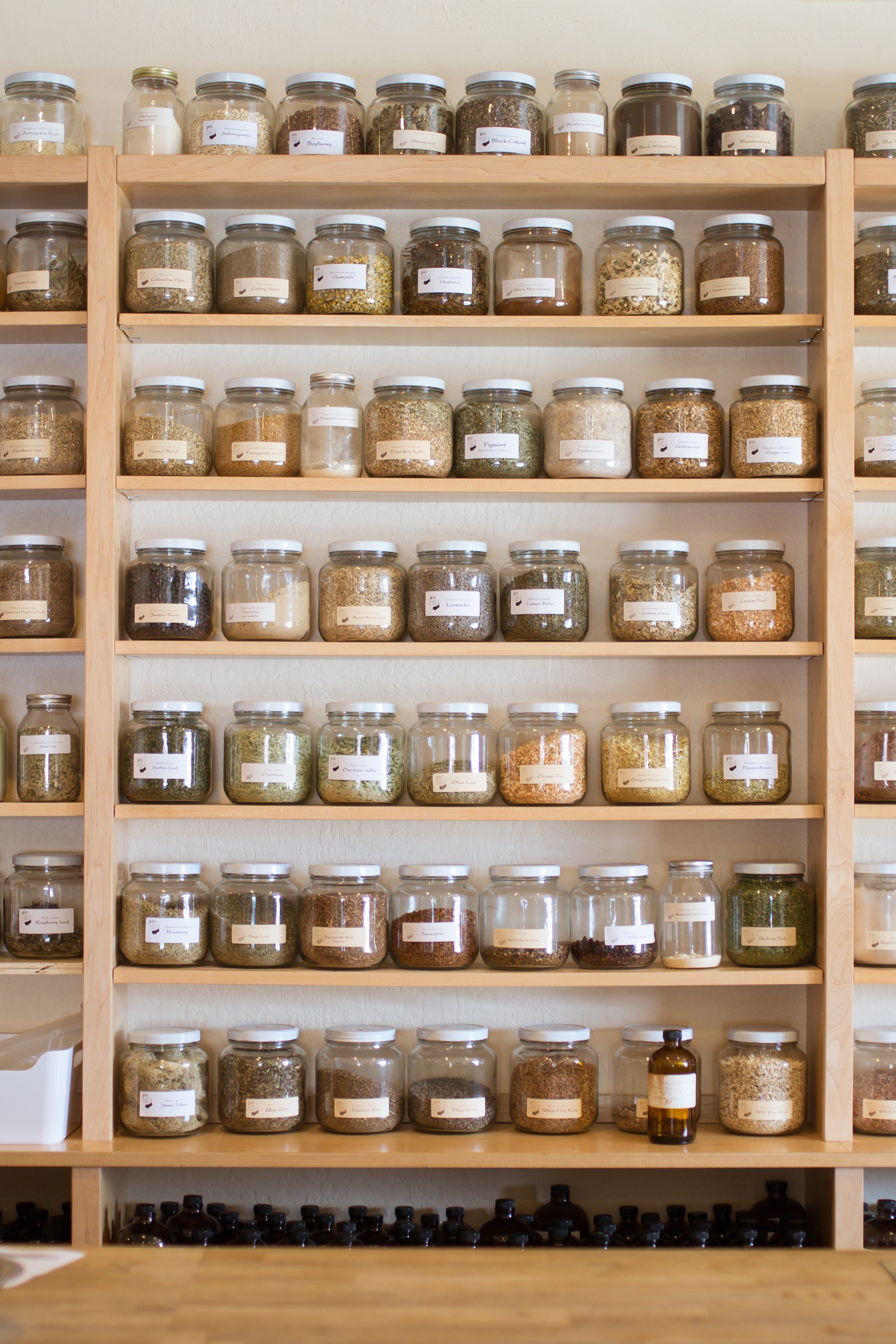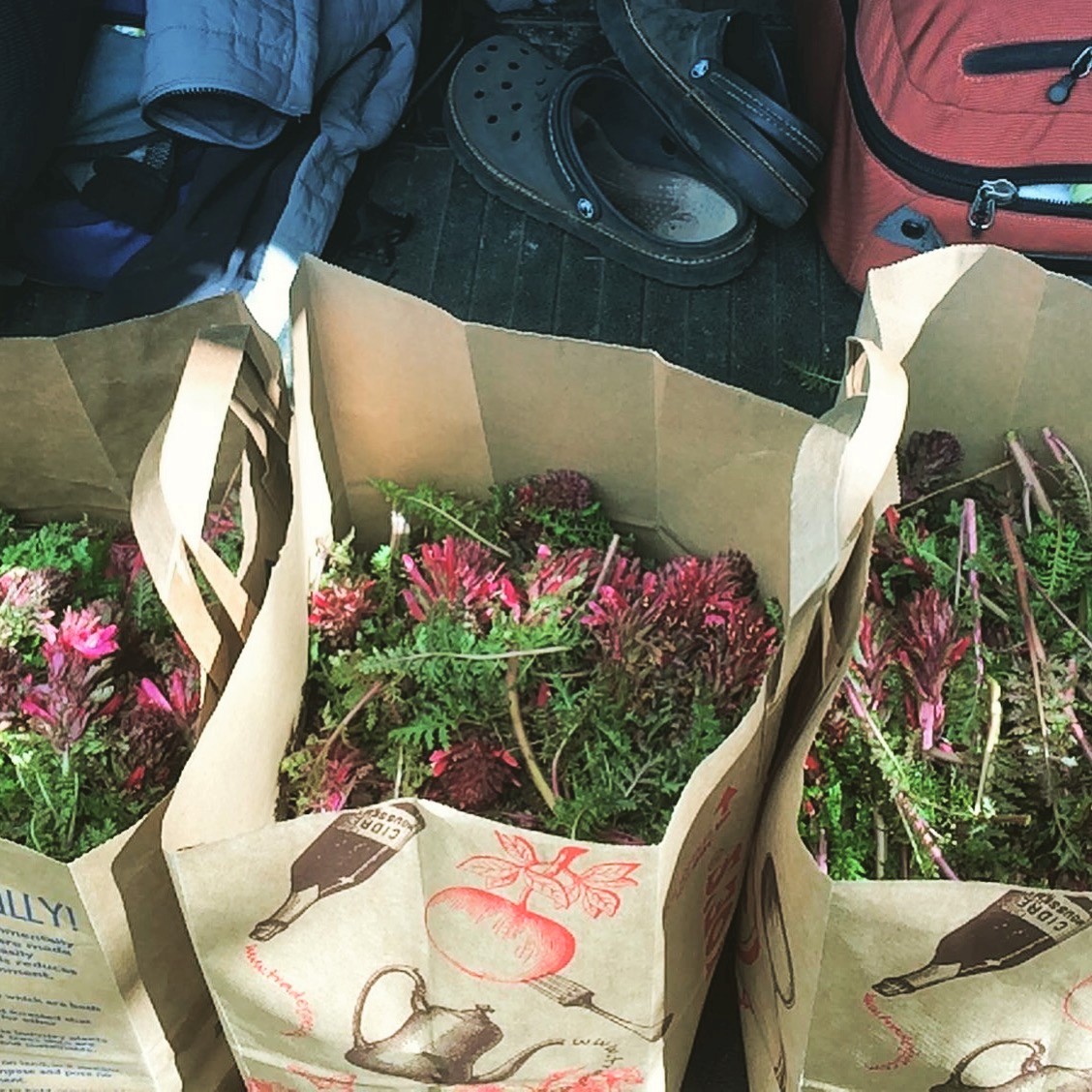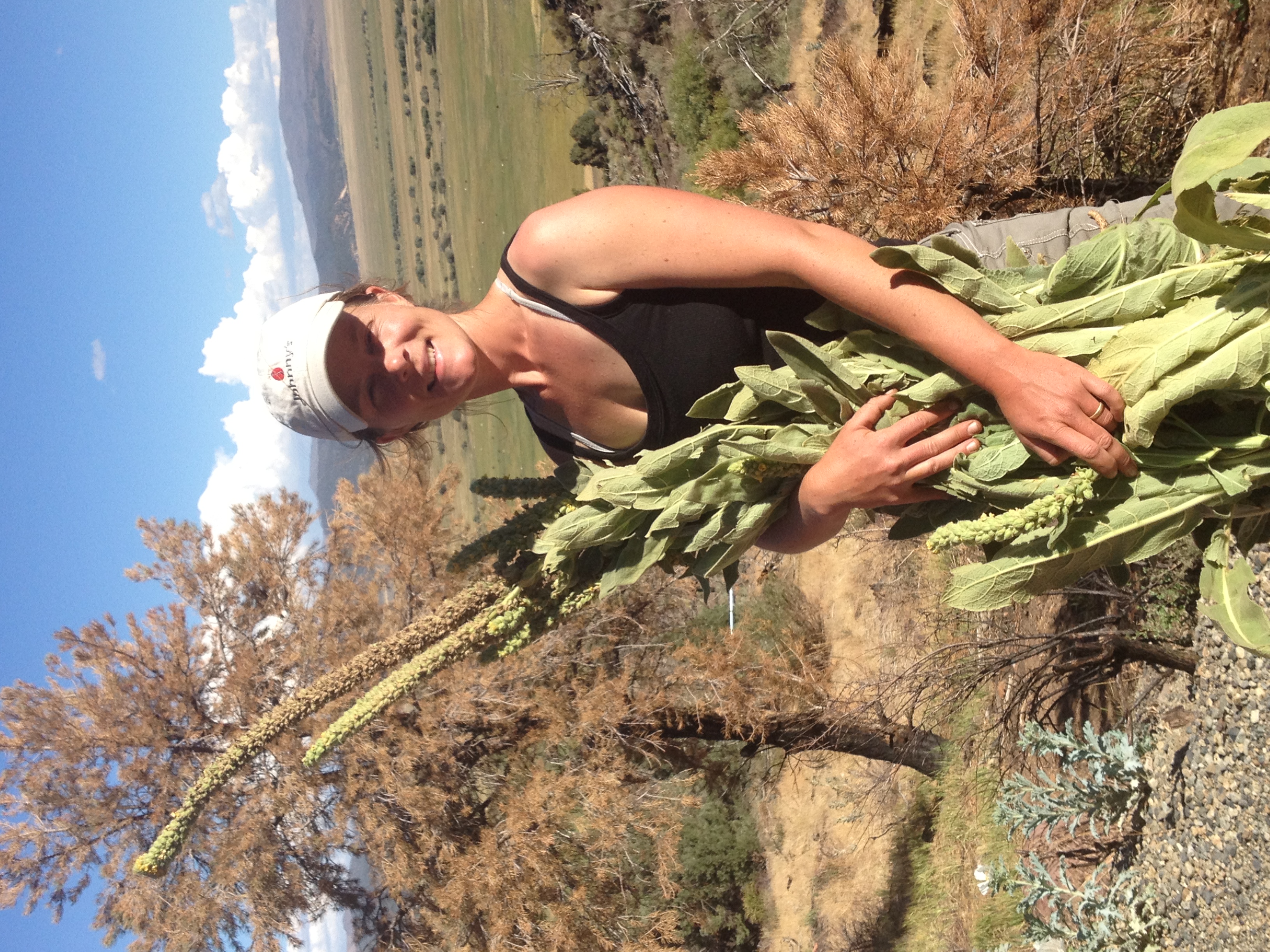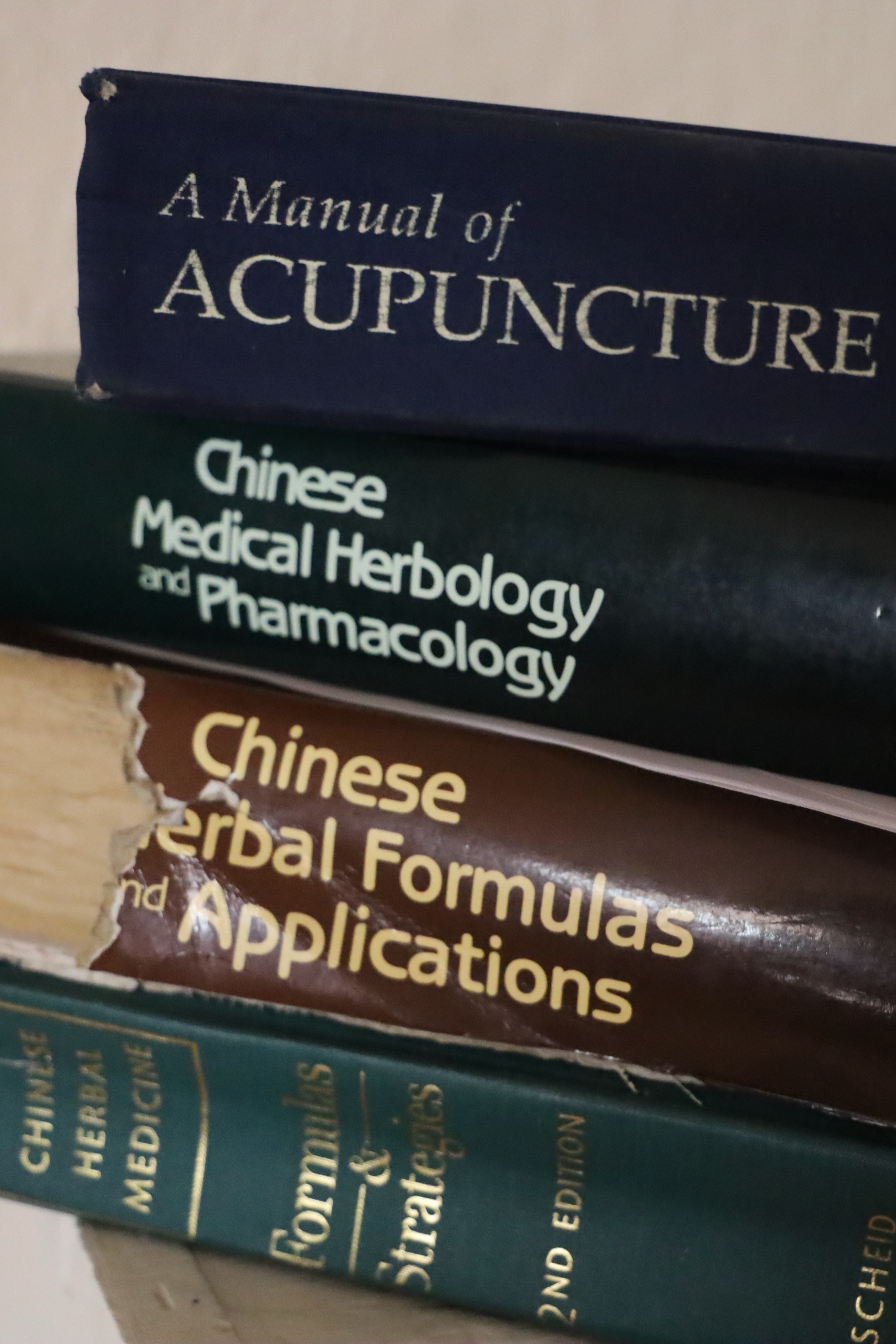When Ben and I founded Five Flavors Herbs, our mission was to improve the health of our patients, customers, and the planet by trusting the wisdom of nature. Raised on an organic farm, I worked in agriculture until entering medical school, and I remain an avid gardener and small-scale herb farmer today. Ben, my husband and the co-founder of Five Flavors Herbs, started his herbal career collecting wild plants for medicine, traversing the high Sierra with botanists Thomas Avery Garran, PhD and Christopher Hobbs, PhD.
Ben and I have settled down since those early days, though we certainly haven’t slowed down a bit! At Sunset Ranch, our homestead and farm headquarters, we are sowing the seeds of a more sustainable way forward for Five Flavors Herbs. As our company grows and puts more of our remedies out into the world, we are engaging with the challenge of ensuring the plants that go into them are sourced in alignment with our fundamental values of social and ecological equity.
Global Herb Trade
Many folks think about herbal medicine as something quaint and local. But the reality is that in most cases, the botanicals trade has become a massive international industry that involves shipping containers full of dried herbs between continents to supply the ever-growing demand for dietary supplements. Many of the easy-to-grow herbs on the shelves of local US herb shops, like chamomile, are grown in Eastern Europe. Similarly, American ginseng, whether illegally harvested from Appalachia or organically grown in the upper Midwest and Canada, feeds the Chinese market.
There are several big problems with this globalized trade network. The shipping involved leaves a large carbon footprint, meaning that even herbs cultivated using responsible growing practices can end up negatively impacting the environment later down the processing line. The international system is also vulnerable to supply chain interruption due to climate change-fueled extreme weather events, trade wars and tariffs, and pandemics. Finally, a longer supply chain with more handoffs creates more opportunities for mistakes and/or unethical practices that compromise quality, including mis-identification and contamination with heavy metals and pesticides.
For all of these reasons, we prioritize purchasing local or domestically produced and organically grown herbs whenever possible. When importing Chinese herbs, we work with select Bay Area companies that carefully manage their supply chain from Asia. We qualify our vendors through third-party testing and botanical identity confirmation to ensure that we can trust our suppliers. And more and more, we are pursuing a goal of procuring as many of our ingredients as possible within the US, including right on our own farm.
Wildcrafting in the West
When we first began making herbal extracts 20 years ago, our audience was small, and we grew or wildcrafted many of the plants we used. We traveled to the same stands of wild plants each year: St. John’s wort, osha, yerba mansa, grindelia, yerba santa, Pedicularis, prickly poppy, and many other valuable medicinals that grow wild across California and the American West.
By practicing principles of ethical wildcrafting, we felt confident that we were harvesting plants in a sustainable manner. We asked permission of landowners and of the plants themselves. We surveyed the area to make sure there was an abundance of that species throughout the region and in a particular stand. We selected only a small percentage of plants to harvest, and if harvesting roots or rhizomes, we tried to replant crowns or leave pieces of rhizome behind. We cleaned up after ourselves and made sure that our harvesting hadn’t left any trace on the landscape. And the next year, we could see that our practices had been effective when we encountered a healthy and replenished stand able to withstand another harvest.
We continue to adhere to these best practices, and we require that our suppliers do the same. However, as our ingredient demands increase, we are shifting to more cultivated herbs, in order to avoid placing an unsustainable strain on the wild medicinal populations and the ecosystems they are a part of.
Owning Our Footprint
As Five Flavors Herbs has grown, and as the toll of climate change and urban sprawl have impacted wildlands across the West, we recognize that our ecological footprint as a company and as a society is expanding. Many species of plants endemic to North America are at risk or “to watch” for endangerment, including our beloved osha root, yerba mansa, black cohosh, goldenseal, American ginseng, white sage, and many others listed by United Plant Savers. Indigenous leaders, nonprofit organizations, and organic farmers echo this message: Relying on wildcrafted plants to supply the burgeoning herbal products industry is becoming unsustainable. Furthermore, the fossil fuels required for industrial agriculture and international shipping are directly influencing the rising temperatures and erratic weather patterns seen around the globe.
Our Actions Towards Sustainability
At Five Flavors Herbs, we are continuously exploring how we can improve the ecological sustainability of the remedies we manufacture. We celebrate the growing popularity of botanicals for health and healing, but only so long as these trends support the health and healing of the planet as well. Our current initiatives include: reformulating our products to use more local and organically cultivated plants, partnering with our vendors to ensure supply chain sustainability, and collaborating with nonprofits and Indigenous nations to protect native plants and promote the rematriation of Indigenous cultures and homelands.
We recently purchased a former cattle ranch in the Sierra Foothills, where we are gradually rebuilding the soil and reintroducing native medicinals back onto the land. Cover-cropping, composting, and redesigning irrigation systems will allow us to cultivate more of the European and North American plants we use in our formulas. We are seeking to partner with our vibrant community of local organic farms to supply more fresh herbs for extraction.
We also tithe to the Lisjan Ohlone people of the East Bay and to the Nisenan Rancheria of Nevada City, in recognition that we are living, farming, and doing business on stolen land. In order to be in a righteous relationship with the plants and the planet, we need to recognize and support the Indigenous people who are still here, and whose knowledge of plants has contributed to our practice of cultivating, making, and healing with herbal medicine.
Our production facility is certified by CCOF to allow us to manufacture certified organic extracts for our custom manufacturing clients. Several of our own signature tinctures are also certified organic, including Sustainable Energy and Mother’s Helper, as well as a line of single herb extracts in retail and wholesale sizes. We have begun to substitute wildcrafted herbs in our formulas for organically grown botanicals, such as elecampane flower for grindelia in Respiratory Recoup. We are also partnering with United Plant Savers in protecting at risk North American medicinals, we help support leading edge research into the US cultivation of Chinese medicinal herbs, and we are active in natural products industry groups such as the American Herbal Products Association to promote the use of sustainable botanicals in the greater supply chain.
Sustainable Sourcing for Traditional Chinese Medicine
Because our products and practices are deeply informed by Traditional Chinese Medicine, we continue to import many herbs from China. Some valuable tonic herbs have no comparable analogs within the Western materia medica, such as dong quai, atractylodes, and Asian ginseng. Furthermore, traditional Chinese methods of preparation, or pao zhi, are important to the proper actions of the herbs, and are not widely practiced outside Asia. An increasing number of Chinese-grown medicinals are becoming available in certified organic versions, and in order to ensure the highest quality and purity of these herbs, we work closely with reputable importers such as NuHerbs, Spring Wind Herbs, and Tianjing/Treasure of the East to supply the bulk herbs, granulated extracts, and tea pills for our tinctures and our custom pharmacy. For these reasons, we feel our imported Chinese herbs strike the best available balance between quality and sustainability at this time, and we will continue to support initiatives to grow and process TCM herbs using authentic methods here on US soil for an even more sustainable path forward.
How Consumers Can Support Sustainable Plant Medicine
Whether you are focused on healing yourself, or you are concerned about the health of the planet for your children and grandchildren, we hope you will join our efforts toward sustainability. Consider buying locally grown food and herbs and/or planting your own garden. Learn about and support the Indigenous people where you live. Learn about the wild weeds and medicinals in your area and find out if these are safe and sustainable to harvest—or get starts from a local native plant nursery to expand the population! However you can, pay attention to your own footprint, and make each step a move in the direction of a more sustainable, just, and equitable future.
MORE ON RESPONSIBLE SOURCING:
SUSTAINABLE HERB CULTIVATION FOR TCM
You might also enjoy:
- We Go Overboard with Quality—Testing Here’s Why
- Why Black Lives Matter Is an Integrative Health Issue
- The Five Flavors in Traditional Chinese Medicine
Written by Ingrid Bauer, MD, MS: With experience that bridges Western and Eastern medicine, Ingrid Bauer brings rigorous scientific knowledge to Five Flavors Herbs. A graduate of the UC Berkeley/UCSF Joint Medical Program and the American School of Herbalism in Santa Cruz, CA, Ingrid integrates plant-based medicine into mainstream healthcare. She is passionate about bringing holistic care to people from all walks of life. Her master’s research focused on Latino health beliefs and traditional medicine at a bilingual clinic in Oakland, CA, and she teaches workshops about herbal medicine at conferences and schools.





